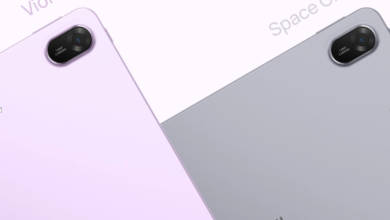In the evolving landscape of electric mobility, the ccs quick charger has emerged as a game-changer. With electric vehicles (EVs) becoming more popular and the demand for faster, more efficient charging solutions increasing, CCS (Combined Charging System) quick chargers offer an advanced and unified solution that meets the needs of both automakers and drivers. Unlike older, slower charging technologies, the ccs quick charger brings high-speed, standardized, and safe EV charging to highways, urban centers, and commercial hubs around the world.
This article explores the significance of the ccs quick charger how it works, its benefits, global adoption, and why it’s reshaping the EV charging infrastructure.
What Is a ccs quick charger?
A ccs quick charger is a high-powered EV charger that uses the CCS (Combined Charging System) interface to rapidly deliver electricity to electric vehicles. CCS combines AC (Alternating Current) and DC (Direct Current) charging into one universal plug, enabling faster and more versatile charging capabilities.
The key feature of a ccs quick charger is its ability to deliver direct current at high voltages—often between 50 kW to 350 kW—allowing EVs to gain substantial range in a matter of minutes rather than hours.
How Does a ccs quick charger Work?
The ccs quick charger uses a two-part connector system. The upper part consists of a Type 1 or Type 2 connector (depending on region) for AC charging, and the lower part adds two DC power pins for fast DC charging. This dramatically increases the speed of charging.
Most modern EVs with CCS ports can communicate with the charger to regulate power levels, monitor battery temperature, and ensure safe charging.
See also: Discover Confidence at a Trusted Medical Beauty Center
Benefits of the ccs quick charger
1. Fast Charging Times
A typical EV can gain 100–300 kilometers of range in 20–30 minutes using a ccs quick charger, depending on the battery capacity and charger output. This speed significantly reduces waiting times and enables long-distance travel.
2. Widespread Compatibility
CCS is supported by many of the world’s top automakers including Ford, BMW, Volkswagen, Hyundai, Audi, Kia, and more.
3. Reduced Infrastructure Complexity
Because CCS supports both AC and DC charging, the infrastructure becomes simpler. Station operators don’t need to install multiple types of chargers for different car models.
4. Smart Charging Capabilities
Modern CCS quick chargers are often equipped with features like load balancing, remote monitoring, mobile payments, and even renewable energy integration.
5. Scalability
From small urban charging hubs to large highway rest stations, ccs quick chargers can be deployed in various environments. Their modularity allows for easy scalability as EV adoption increases.
The Role of the ccs quick charger in EV Infrastructure
As EVs become mainstream, fast-charging infrastructure is critical to consumer adoption. Many drivers cite range anxiety and long charging times as concerns when considering switching to electric vehicles. The ccs quick charger directly addresses these issues by offering rapid charging at key locations.
Governments and private companies are now working hand-in-hand to roll out national and cross-border CCS networks. These quick chargers are increasingly being installed at:
- Motorway service stations
- Urban commercial areas
- EV fleet depots
- Retail centers
- Public parking facilities
Global Adoption of ccs quick charger Technology
Europe
Networks like IONITY, backed by major automakers, are rapidly deploying 350 kW CCS stations along highways to support pan-European EV travel.
United States
The Biden administration’s EV infrastructure funding includes plans to expand CCS-based networks across all 50 states.
Asia
South Korea and India are ramping up CCS adoption, while Japan—which historically supported CHAdeMO—is starting to integrate CCS quick chargers into new charging sites.
Key Manufacturers of ccs quick chargers
Several technology and energy companies are developing and installing ccs quick charger infrastructure worldwide:
- ABB: Provides high-power CCS chargers up to 350 kW.
- Tritium: Known for compact, efficient fast chargers used in both public and private networks.
- Delta Electronics: Offers scalable charging systems ideal for fleet operations.
- EVBox: Focuses on smart CCS charging solutions with cloud integration.
Use Cases of the ccs quick charger
1. Highway Fast Charging
The most common use for ccs quick chargers is along highways, where drivers need rapid refueling during long-distance trips.
2. Ride-Share and Delivery Fleets
Urban fleet operators benefit from CCS technology by quickly cycling vehicles through charging sessions during operational downtimes.
Why Businesses Should Invest in ccs quick chargers
Whether you’re an entrepreneur, a fleet manager, or a property developer, investing in ccs quick charger infrastructure offers long-term value:
- Increased customer footfall in commercial locations
- Added value for tenants in residential or office complexes
- Fleet efficiency and reliability through fast charging cycles
- Brand positioning as a sustainable and forward-thinking business
As EV numbers climb, locations equipped with fast charging become more desirable to customers, employees, and partners alike.
Conclusion
The ccs quick charger is more than just a piece of hardware—it’s a cornerstone of the electric mobility revolution. By offering speed, efficiency, and compatibility in one system, it is empowering drivers and businesses to make the transition to electric vehicles easier and more practical.
With governments supporting widespread CCS deployment and automakers standardizing around it, now is the ideal time to understand and invest in ccs quick charger infrastructure. It’s not just the future—it’s the fast-approaching present.
.





